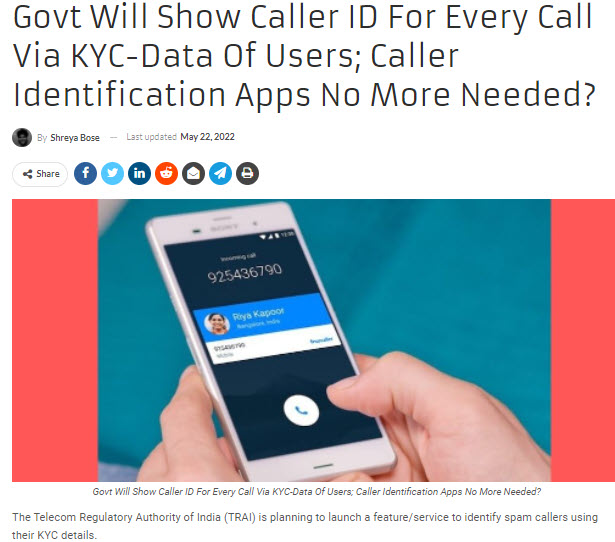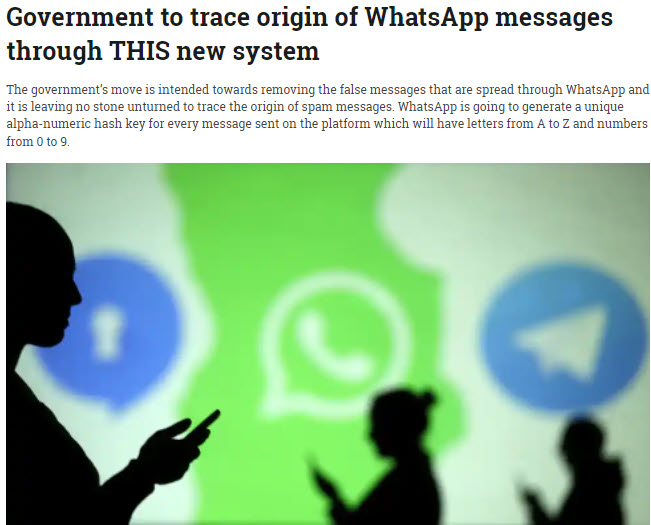
In a highly laudable move, the TRAI has mooted an idea that Caller IDs as linked to KYC information should be displayed when a person receives the calls on a phone device.
In effect this would substitute the True Caller service where True caller displays the popular ID of the caller as it gathers from different members over a time.
The True caller system was useful to avoid spam calls but was not accurate. It could lead to caller ID not being available for new SIM registrations. It could also be wrongly tagged either positively or negatively if a few persons could act in tandem. The True Caller system was also a Privacy Nightmare since it collected third party information for which there was no privacy consent.
On the other hand, MSPs already have KYC data for all Indian subscribers and if this data base is linked to the incoming number display system, the receiver of the call could see both the incoming number as well as the registered name.
Some refinements may however be required where by the disabling of caller ID display should be prevented and a secondary user name should be available to the user so that owner of multiple numbers could designate the secondary user’s name to be displayed. For example if the head of the family wants the Phone/SIM to be used by his wife, children or other family members , the caller ID may be allowed to be displayed with the primary name fed from the MSP data base while the secondary name may be a variable at the discretion of the user.
The verifiability of the caller ID will go a long way in preventing Vishing frauds particularly when OTP is collected by fraudsters by impersonated calls. Hence the measure would substantially help the Bankers in avoiding the Phishing Risk particularly after the introduction of the limited liability system.
It was surprising that RBI never thought of such a provision from its own concerns since this is likely to make even the OTP system more robust and avoid the SIM cloning frauds.
The Data Protection Law as is envisaged today and the provisions under the Intermediary guidelines under ITA 2000 has suggested that the option of “Verifiability” has to be provided to all Indian subscribers of messaging services and once verified, the verified name has to be displayed along with the message.
The TRAI has pre-empted the move for MSPs and we hope this does not remain a suggestion only on paper but is introduced shortly. We should expect that the Telecom giants will oppose the move and cite Privacy Concerns. However, there is no privacy issue here since it is the duty of the caller to identify himself with the called. It is the right of the called to know who is calling before he picks up the call since “Call” is a “Transaction between two parties and both have to consent to talking”.
As a logical step, TRAI has to extend this provision to G-Mail and other email service providers so that phishing over e-mail is also prevented.
Further, MeitY should extend this to all domain name registrars and ensure that the identity of domain name owners is made available on demand since fraudulent websites hide the identity of the registrants and escape the reach of law.
Once again, Congratulations to TRAI for the initiative. Kindly carry it through to implementation.
The move should be welcomed by all genuine business houses since they would like to interact with their customers on an identified basis. Today Banks are unable to have telephonic conversation with their customers since the moment a person says “I am calling from ……Bank”, we disconnect. Genuine business calls therefore are missed. Even when we need to call a friend, we have to take care to send him a message first that “I will call you shortly” and call only thereafter. These inconveniences are prevented by this measure.
Naavi











